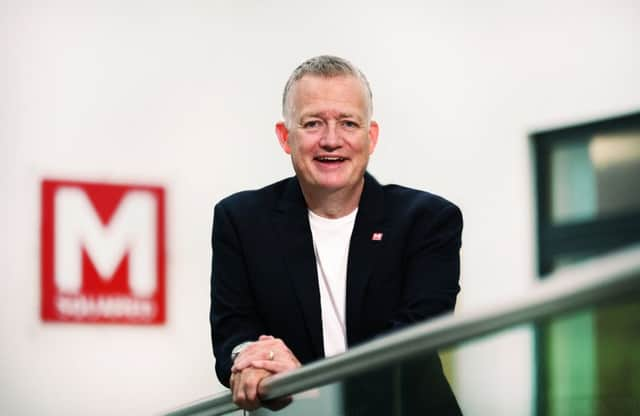University of Strathclyde-led quantum technology tie-up nets £4.6m


Researchers at Strathclyde along with Glasgow-based photonics and quantum technology company M Squared are collaborating to develop advanced computing technology, which they say could strengthen banking security, enhance traffic management and support aerospace security. The partners aim to work with fintech and aerospace businesses to deliver major advancements in the UK’s quantum capabilities.
The research has gained £2.6m in Prosperity Partnership funding from the Engineering and Physical Sciences Research Council (EPSRC) as part of UK Research and Innovation, while M Squared has invested a further £1.7m, and Strathclyde has contributed £300,000.
Advertisement
Hide AdAdvertisement
Hide AdThe project is targeting more computational power than even the largest available supercomputer.
Graeme Malcolm, chief executive and founder at M Squared, said the tie-up “is a demonstration of the scientific community harnessing the enormous benefits of collaboration between world-leading research institutions and advanced industry in the quest to develop frontier technologies”.
He added: “At M Squared we are thrilled to be at the heart of this ground-breaking work which the new funding will help to accelerate. Cross-sector investment is proving critical for progressing the UK’s quantum computing capabilities, and we are extremely proud to be at the forefront.
“Glasgow has all the requisite components to pioneer the coming quantum era on the world stage and play a globally significant role in shaping the future of these defining years for the trajectory of this technology.”
Strathclyde’s lead in the Prosperity Partnership project is Jonathan Pritchard, a research fellow in the university physics department.
He said: “We are really excited to have secured significant funding to develop this new experimental platform, which is currently not supported within the quantum technology hubs but which offers the potential to be truly disruptive… This is great opportunity, both for Strathclyde and for the UK as a whole, to establish new capability by working directly with global leaders in supplying commercial laser systems to quantum computing activities.”
EPSRC executive chair Lynn Gladden said: “The partnerships announced today demonstrate the critical role that collaboration between UK researchers and industry partners will play in developing the revolutionary technologies of tomorrow.”
The funding announcement follows the recent opening by M Squared of a quantum research facility, based in Strathclyde’s Inovo building in Glasgow City Innovation District.
Advertisement
Hide AdAdvertisement
Hide AdFuture applications of the technology developed in this partnership include accelerated drug design for improved healthcare, novel materials for aerospace and manufacturing and the speed-up of optimisation problems including scheduling and logistics for enhanced traffic management or improved efficiency in energy distribution across the National Grid.
UK Research and Innovation chief executive Sir Mark Walport said: “The investments announced today will help to ensure the UK has a robust system in place to withstand cyber threats and create a safer future online, increasing trust and productivity in our economy.”
Business secretary Andrea Leadsom said: “Cyber-attacks can have a particularly nasty impact on businesses, from costing them thousands of pounds in essential revenue to reputational harm.
“Investing in our world-leading researchers and businesses to develop better defence systems makes good business and security sense.”